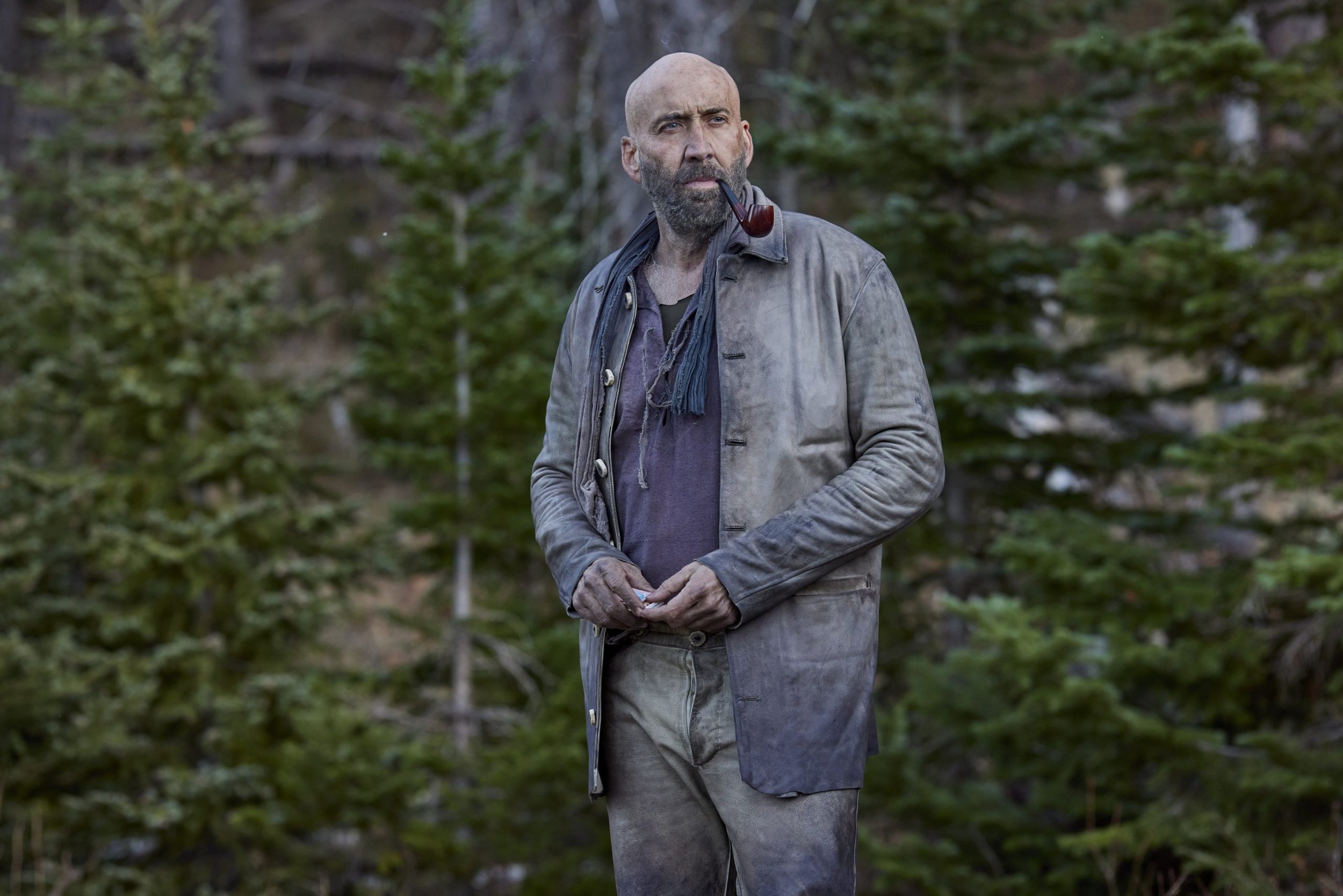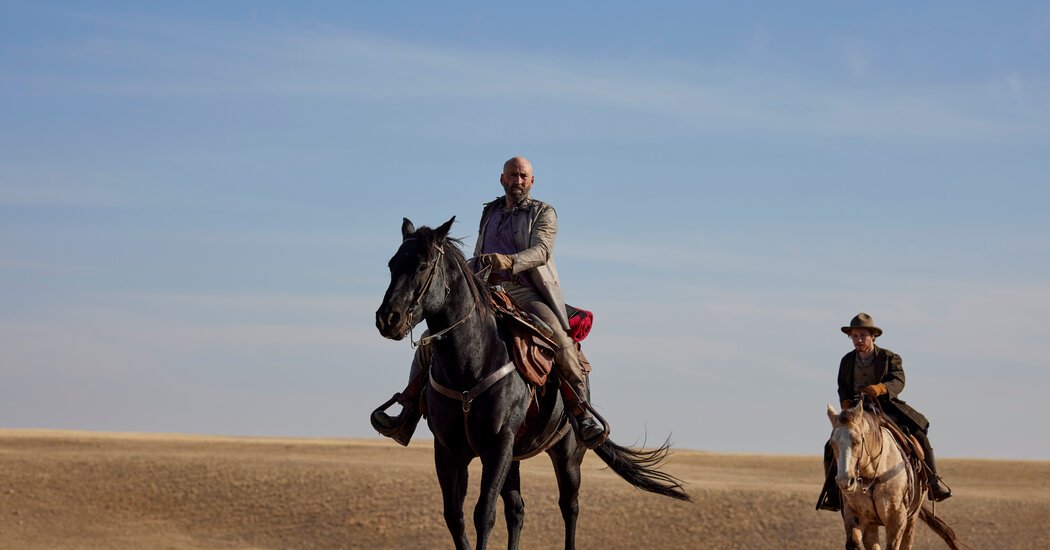"Butcher's Crossing" - Film Review
There was a hopefulness about the American West that still persists today. Something about the wide-open spaces, the unbroken horizon, and the awe-inspiring natural landmarks compels people, even now, to see what that part of the country has to offer. There’s an intrinsic feeling of possibility when one begins a journey, and it’s that feeling that takes Butcher’s Crossing’s Will Andrews (Fred Hechinger) westbound in the late-1870s. He’s a disillusioned Harvard dropout who believes the future lies in the West. Will gives every penny he has to a mysterious man, Miller (Nic Cage), who promises that he can find a field of bison untouched by settlers. Will and Miller (plus the ragtag team he assembles) set out to bring in the biggest haul of bison hides ever made, but the open wilderness of the West has more than a few tricks up its sleeve.
There’s a wide-eyed feeling in Will that’s infectious. As he’s rolling into his new life on a covered wagon, his eyes are bright, dancing from sight to sight. He left the hallowed halls of Harvard to see something “real.” To understand what lies beyond the classroom. Hechinger plays Will’s amazement perfectly. He’s the quintessential westward traveler with big eyes, big ideas, and a big sense of wonder that can’t be contained. Of course the opportunities of the West are not exactly what they seem, and neither is Miller. It doesn’t take long for Will to realize that he is on a fool’s errand. The excursion is less about making money and more about Miller’s obsession with a particular patch of untamed wilderness. This herd of bison is Miller’s Moby Dick, and Will is at the mercy of the unrelenting hand of Miller.
Saban Films
Cage has become known for his eccentric performances. Just this year, he starred in Renfield, The Retirement Plan, and Dream Scenario. All three movies banked on his reputation as an odd performer. Cage has never once been afraid to fully commit to a role. Even through his era of direct-to-DVD performances, Cage was always game. The same can be said for his part in Butcher’s Crossing, although it’s not the eccentric Cage of other works. It’s the Cage who wowed audiences with his reserved nature in Pig. Butcher’s Crossing doesn’t give him the same possibilities for depth and nuance as Pig, but Cage is similarly stoic. He’s a man with an obsession; one that will drive him mad if he lets it.
As one might expect of a film shot in the American West, Butcher’s Crossing is a visual treat. The candy-colored sunsets over the open plains could make anyone pack up and leave for the life of a pioneer. It’s difficult not to be swept up in the romance of all that part of the country has to offer. Even when the film is blown into winter, there’s still a sense of awe and reverence for the snowy beauty of the mountains. The film’s score perfectly punctuates the always-unsettling feeling of being in that wide-open environment. The editing, too, elevates the brutal nature of the work these men are doing.
Saban Films
Butcher’s Crossing has a clear conservationist message. It’s clear that greed leads to ruin, both for the people with the desire to run the world ragged and for the scarce resources themselves. In this case, it’s the true story of the bison. In the mid-1800s, an estimated 30–60 million bison roamed the plains. By the end of the 19th century, there were only 300 left. Hunters like Miller and his gang killed as many as they could simply because they were able to and the money was good.
Even at only 107 minutes, there are moments when Butcher’s Crossing gets lost in the wilderness. The descent into insanity is both too fast and not fast enough. All things considered, the hunting party’s months spent living in the elements move along fairly smoothly. As reserved as Cage is throughout the film, there’s a distinct feeling that maybe it would’ve been exciting to see him really lose it. To see the cold and the hunger and the paranoia really take hold. For things to go much darker than they did. Butcher’s Crossing is not a reinvention of the genre, but it is sturdy enough to stand on its own two feet, and that’s largely thanks to Hechinger. His equal parts hopeful and disillusioned Will is the cornerstone of the film. Butcher’s Crossing is a distillation of the myth of the American Dream, a critique that still holds true today.
Follow me on Twitter, Instagram, Letterboxd, and YouTube.


